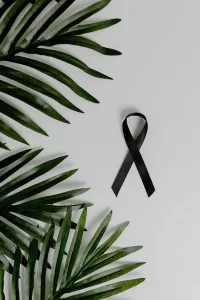 Grieving is a natural response to any of life’s major losses. But, for some, it’s a painful journey that can eventually lead to addiction. It’s important to recognize the signs of a potential addiction and be aware of your own mental health and state of mind. Knowing how to break the cycle of grief and addiction can help save you or someone else from a potentially life-threatening spiral of substance abuse.
Grieving is a natural response to any of life’s major losses. But, for some, it’s a painful journey that can eventually lead to addiction. It’s important to recognize the signs of a potential addiction and be aware of your own mental health and state of mind. Knowing how to break the cycle of grief and addiction can help save you or someone else from a potentially life-threatening spiral of substance abuse.
When we experience a significant loss, a cascade of emotions come with it. Grief can take the form of shock, denial, sadness, loneliness, guilt, hopelessness, and anger. When expressing our emotions is not met with an appropriate level of support, it can be difficult to cope and the need for comfort only increases.
For some, they turn to alcohol or drugs to numb the pain and find solace in the high, at least for a while. When the numbing effect wears off, the grief and emptiness return stronger than ever and this is where we start walking the line of addiction.
It’s important to recognize when the cycle of addiction is forming and take steps to break it before it takes complete control. Here are a few tips that can help:
1. Talk to someone.
It’s important to find someone to talk to. Talking to a friend, family member, or a therapist can be helpful in times of grief. Talking to someone who understands and can empathize can be the source of much-needed comfort in these emotionally challenging times.
2. Reach out to a support group.
Support groups can provide a safe place to express your feelings and experiences. It can be helpful to connect with others who are also struggling or have gone through the same experience. This can be a huge source of strength and a reminder that you’re not alone.
3. Distraction techniques.
Finding new activities to distract from your grief can be beneficial for managing feelings. This could involve finding hobbies or doing things that bring joy such as spending time outdoors or playing music. It can also be helpful to explore ways to find fulfillment through community service or volunteer work.
4. Healthy coping skills.
Healthy coping skills involve replacing the need for drugs or alcohol with healthier alternatives. This may involve self-care activities such as exercise, yoga, meditation, journaling, and relaxation techniques. These can help lessen the urge to reach for a drink or substance.
5. Be patient with yourself.
Grief is a multi-faceted and often unpredictable journey. It takes time to recover and it’s absolutely ok to feel unsure of where to begin. Be kind to yourself during this time. Give yourself permission to go through the process and take each day one at a time.
Grief is a difficult experience and addiction can be a tough cycle to break free from. But, with patience, understanding, and a steady helping hand, it is possible. With these tips, you can start creating a plan to break the cycle of grief and addiction and find a safe, healthy path forward.
Leave a Reply